Serious Snowball Fighting, Aka the Japanese Team Sport Yukigassen
 From the Frosty Landscapes of the Distant Island of Hokkaido
From the Frosty Landscapes of the Distant Island of Hokkaido
Forget about peaceful winter walks and warm cocoa by the fireplace. In Japan, on the winter sports scene, we have something much more exciting: Yukigassen. This name sends shivers down the spine of anyone who has ever felt the rush of adrenaline during this snow battle. Yukigassen, which literally translates to 'snow battle,' is much more than just child's play. It is a full-fledged sport where strategy, dexterity, and quick decision-making are key to victory.


What does the name Yukigassen (雪合戦) mean?

Playing with snowballs in such a frosty region is the norm, and snowball throwing has long been a popular form of entertainment and friendly competition. However, Yukigassen, evolving beyond the realm of simple play, has turned into a sport. A sport that, like other competitions of this type, requires training, strategy, and flexible tactics. It somewhat reflects the spirit of the Japanese, which, if it were possible (but it's not) to fit into one simple sentence, would probably be something like: 'Whatever you do, strive for perfection and dedicate yourself to it completely.'
The History of Yukigassen
Humble Beginnings: In the Village of Sobetsu
Let's start with Sobetsu, a tiny Japanese town on Hokkaido, where snow is not just a winter decoration, but also a daily companion. It was here, in the 1980s, that a group of young people from various sectors - from agriculture to tourism - began to wonder how to revive their town in the cold months. The inspiration was something that for many of us is just child's play: throwing snowballs.
In 1987, an idea was born that would soon become more than just a local event. It was about organizing a snowball throwing tournament - but not an ordinary one, a tournament with real rules, strategy, and... helmets. Yes, you read that right. Helmets would soon become an integral element of this dangerous sport.
 Snowballs Taken Seriously: The First Rules and Equipment
Snowballs Taken Seriously: The First Rules and Equipment
The first official Yukigassen tournament took place in 1989, just two years after the idea was sown. And to make it even more official, special protective equipment and... a snowball-making machine were introduced into the snow battles! Seriously – this device was capable of producing snowballs perfect in size and shape, which was important to maintain equal chances between teams.
Surprising Evolution: From the Fields of  Sobetsu to International Competitions
Sobetsu to International Competitions
What started as a local initiative quickly gained publicity. 1987 – the idea for fun, 1989 the first official competitions in a remote northern town. In 1991, the first women's tournament took place, and just a year later, Yukigassen crossed the borders of Japan, landing in... Australia! 1995 – organization of Yukigassen outside Japan (Finland). And from there, it went quickly – official organizations in Norway, Sweden, Russia, Armenia, Canada, and the USA.
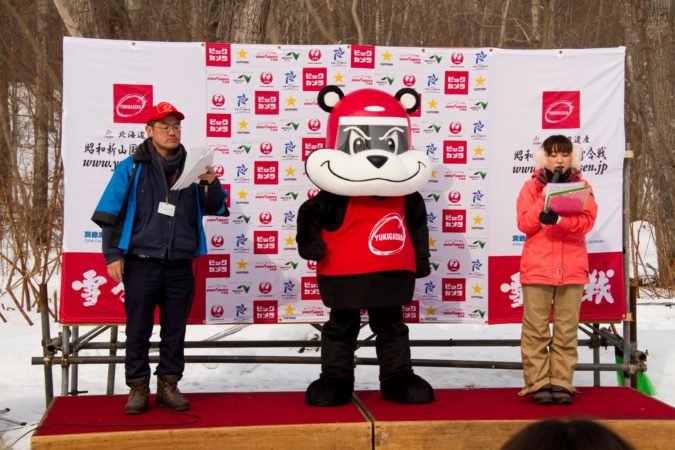
 Yukigassen Today
Yukigassen Today
Yukigassen, from its humble beginnings in Sobetsu on Hokkaido, has transformed into a significant sport with global reach. Today, it is not just a game, but serious competition with clear rules, requiring strategic thinking and quick action. Every year, this small town, located in the heart of Japan's winter paradise, becomes the center of global attention for Yukigassen enthusiasts. Although specific numbers are lacking, it is known that Sobetsu attracts thousands of enthusiasts and competitors from around the world, including places as distant as Scandinavia and North America. For a week every winter, the town comes alive, and hotels and restaurants experience a siege.
In Yukigassen, every move matters - from a precisely thrown snowball to a strategically planned maneuver. It is fascinating how a simple children's game has transformed into a sports discipline that now unites people from all over the world in the spirit of competition and joy of the game.
 The First Tournament: The Birth of Yukigassen in Sobetsu
The First Tournament: The Birth of Yukigassen in Sobetsu
The first official Yukigassen tournament, held in February 1989 in Sobetsu on the island of Hokkaido, ushered in a new era in the world of winter sports. Although no one predicted how popular this discipline would become, it was clear from the beginning that Yukigassen was more than just an ordinary game. This event, held in the picturesque surroundings at the foot of the Showa-Shinzan volcano, attracted winter sports enthusiasts from the entire region who wanted to experience something new and exciting.
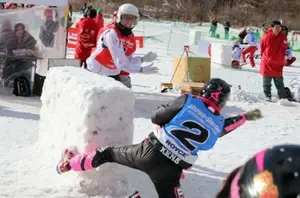
Although the television broadcast of this first tournament was not as widespread as in later years, it quickly gained the attention of local media and became an important event in the sports calendar of Hokkaido. The first Yukigassen tournament in Sobetsu started a tradition that soon spread throughout Japan and the world, transforming a local snowball fight into an international sports phenomenon.
Yukigassen – Rules
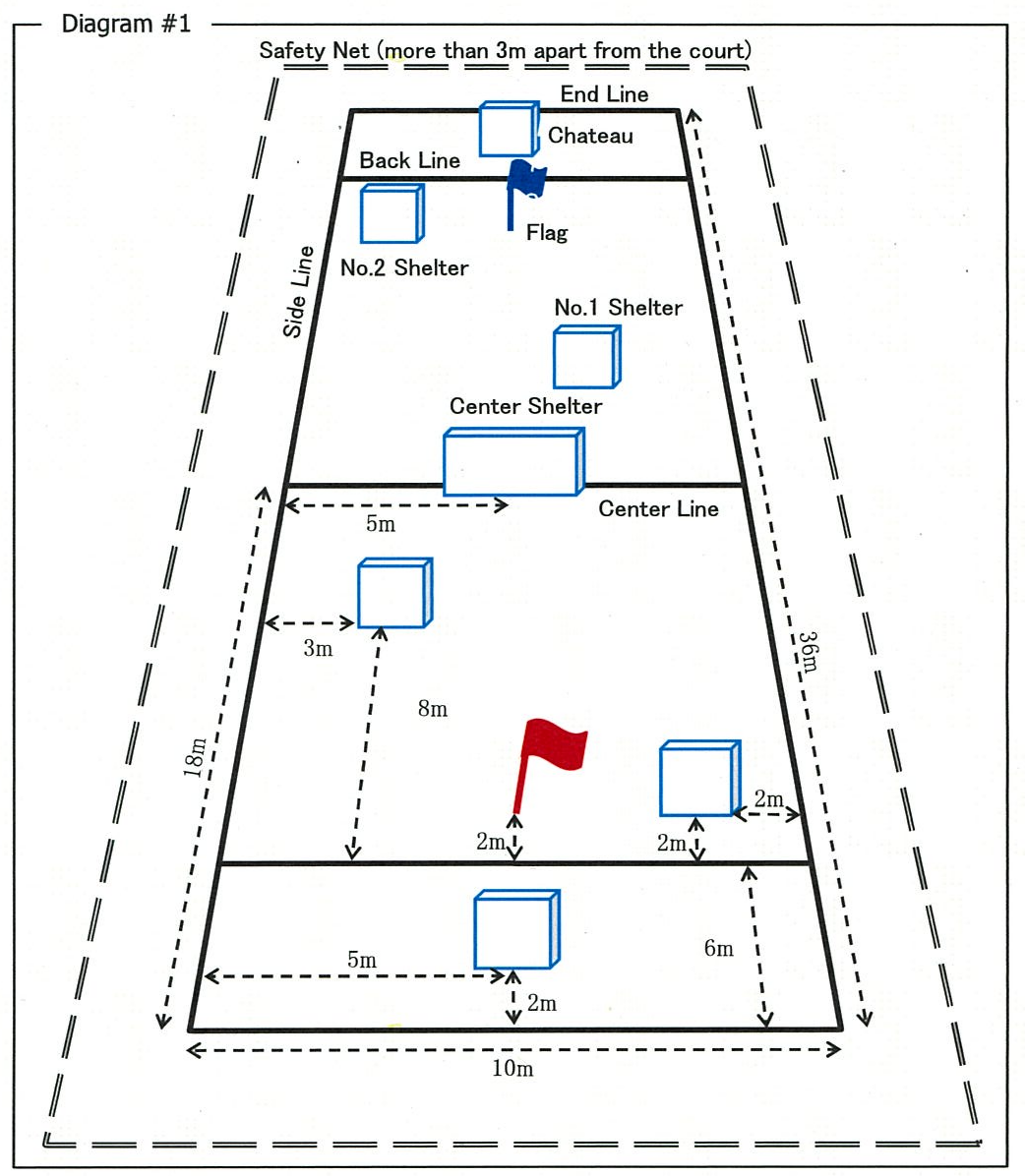
Team Composition and Rotation
Each team consists of 9 players, including 7 active and 2 reserves. In European interpretations, there is a requirement that each team on the field must have at least 3 women. Teams can change players between rounds, but not during an ongoing round.
Game Format and Victory
The match consists of three rounds, each lasting 3 minutes. The team that wins two of the three rounds wins the entire match. A round can be won in several ways: by hitting all the players of the opposing team, capturing the opponent's flag, or having more players on the field when the time runs out.
 Field
Field
The Yukigassen field measures 36 by 10 meters and is divided into two equal parts. On each half, there are shelters behind which players can hide and plan their moves. The flag of each team is placed in the central part of the field, which opponents try to capture.
Player Elimination
If a player is hit by a snowball during a Yukigassen game, they are automatically considered 'eliminated' from the current round. According to the official rules of Yukigassen, it does not matter which part of the body the player is hit - being hit anywhere results in elimination. The exception is when the snowball hits a weapon (another snowball) held by the player. In that case, the player remains in the game. After being eliminated, the player must leave the playing field and wait for the end of the round. In the next round, everyone returns (each round starts with a full lineup of 7 people).
 Player Equipment
Player Equipment
Safety is key in Yukigassen, so every player must wear a helmet with face protection. Only official snowballs produced by the organizers are allowed, ensuring safety and fair play. Players can wear any clothes, but they usually choose sportswear adapted to winter conditions.
Spirit of the Game and Fair Play
Yukigassen is not only a sports competition but also a game of rules based on the spirit of fair play and respect for the opponent. Although emotions on the field can reach a zenith, it is important to remember the primary goal of the game: fun and promoting healthy competition. Players and teams that stand out both in skills and attitude are often awarded special honors at tournaments.
 Contemporary Scene of the Sport Yukigassen (Snowball Fight)
Contemporary Scene of the Sport Yukigassen (Snowball Fight)
Yukigassen, from its humble beginnings in Sobetsu, has developed into a global phenomenon, with tournaments taking place all over the world. The most important event is the annual Showa-Shinzan International Yukigassen in Japan, which attracts the best teams from around the world. Other important competitions include the European Championships in Kemijärvi, Finland, and numerous tournaments in Norway, Sweden, Canada, and Australia.
Champions and Dominating Teams
The current Yukigassen scene is characterized by strong competition, with teams from Japan, Scandinavia, and Canada often dominating international tournaments. Japanese teams, thanks to their experience and tradition in this discipline, often occupy top places, but in recent years teams from other countries, such as Finland or Canada, have shown significant improvements in skills and strategies.
 Regional Differences in the Level of Play
Regional Differences in the Level of Play
The level of play in Yukigassen varies depending on the region. In Japan, where the sport has the longest history, the level is exceptionally high, with teams demonstrating excellent precision and tactics. In Europe, especially in Scandinavia, the sport is dynamically developing, with increasingly better results in international competitions. In Canada and the USA, Yukigassen is relatively new, but it is quickly gaining popularity, with teams increasingly performing well in international competitions.
Examples of Contemporary Game Tactics in Snowball Fight
-
Rapid-Fire Attack: One of the popular strategies is an aggressive attack, where players quickly and continuously throw snowballs at opponents, trying to surprise them and quickly eliminate them from the game.
-
Defense and Counterattack: Another strategy focuses on defense and using the moment when the opponent is distracted to launch a counterattack. This tactic requires good coordination and communication within the team.
-
Deception and Diversion: Some teams use more deceptive strategies, such as feigned attacks, to divert the opponent's attention, while another part of the team makes a decisive move.
-
Occupying Key Positions: Controlling key areas of the field, such as shelters close to the opponent's flag, can be decisive. Teams often compete for these strategic positions to gain an advantage.
Snowball Fight:
Rural Fun -> Professional Sport -> International Organization
-> What's Next? (The Road to the Olympics)
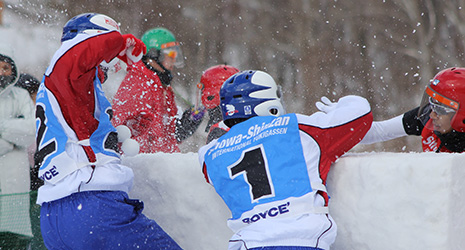
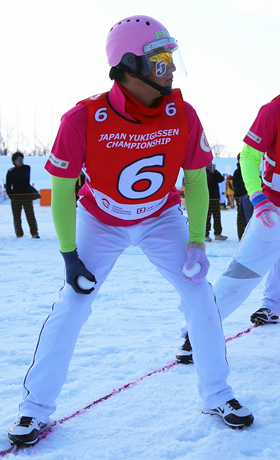
Looking to the future, Yukigassen has every chance to become even more recognizable worldwide. The possibility of including this sport in the Winter Olympics is being considered, which would be a huge step towards global recognition of Yukigassen as a serious sporting discipline. Such a change could open new opportunities for players, coaches, and fans of Yukigassen, while promoting values such as international cooperation, healthy competition, and respect for sporting tradition. Although the road to the Olympic stage may be long and full of challenges, the enthusiasm and passion of the Yukigassen community give hope for a bright and exciting future for this unique sport.
>>SEE ALSO SIMILAR ARTICLES:
Hokkaido Before the Japanese: The History and Culture of the Ainu
Traditional Japanese Games - A Bridge Between the Real World and Anime
From Tanabata to Gion Matsuri: Japanese Festival Traditions Then and Now
"Strong Japanese Women"
see book by the author
of the page
未開 ソビエライ
An enthusiast of Asian culture with a deep appreciation for the diverse philosophies of the world. By education, a psychologist and philologist specializing in Korean studies. At heart, a programmer (primarily for Android) and a passionate technology enthusiast, as well as a practitioner of Zen and mono no aware. In moments of tranquility, adheres to a disciplined lifestyle, firmly believing that perseverance, continuous personal growth, and dedication to one's passions are the wisest paths in life. Author of the book "Strong Women of Japan" (>>see more)
Personal motto:
"The most powerful force in the universe is compound interest." - Albert Einstein (probably)
Mike Soray
(aka Michał Sobieraj)
未開 ソビエライ
An enthusiast of Asian culture with a deep appreciation for the diverse philosophies of the world. By education, a psychologist and philologist specializing in Korean studies. At heart, a programmer (primarily for Android) and a passionate technology enthusiast, as well as a practitioner of Zen and mono no aware. In moments of tranquility, adheres to a disciplined lifestyle, firmly believing that perseverance, continuous personal growth, and dedication to one's passions are the wisest paths in life. Author of the book "Strong Women of Japan" (>>see more)
Personal motto:
"The most powerful force in the universe is compound interest." - Albert Einstein (probably)
Mike Soray
(aka Michał Sobieraj)
Write us...
Ciechanów, Polska
dr.imyon@gmail.com
___________________
inari.smart
Would you like to share your thoughts or feedback about our website or app? Leave us a message, and we’ll get back to you quickly. We value your perspective!
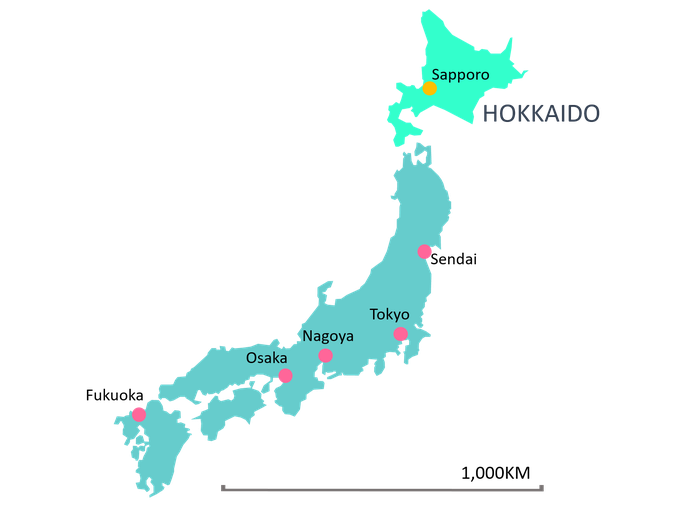 From the Frosty Landscapes of the Distant Island of Hokkaido
From the Frosty Landscapes of the Distant Island of Hokkaido

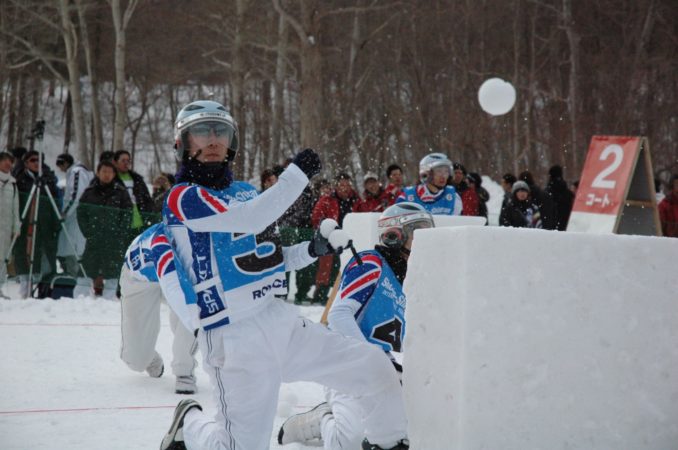 Snowballs Taken Seriously: The First Rules and Equipment
Snowballs Taken Seriously: The First Rules and Equipment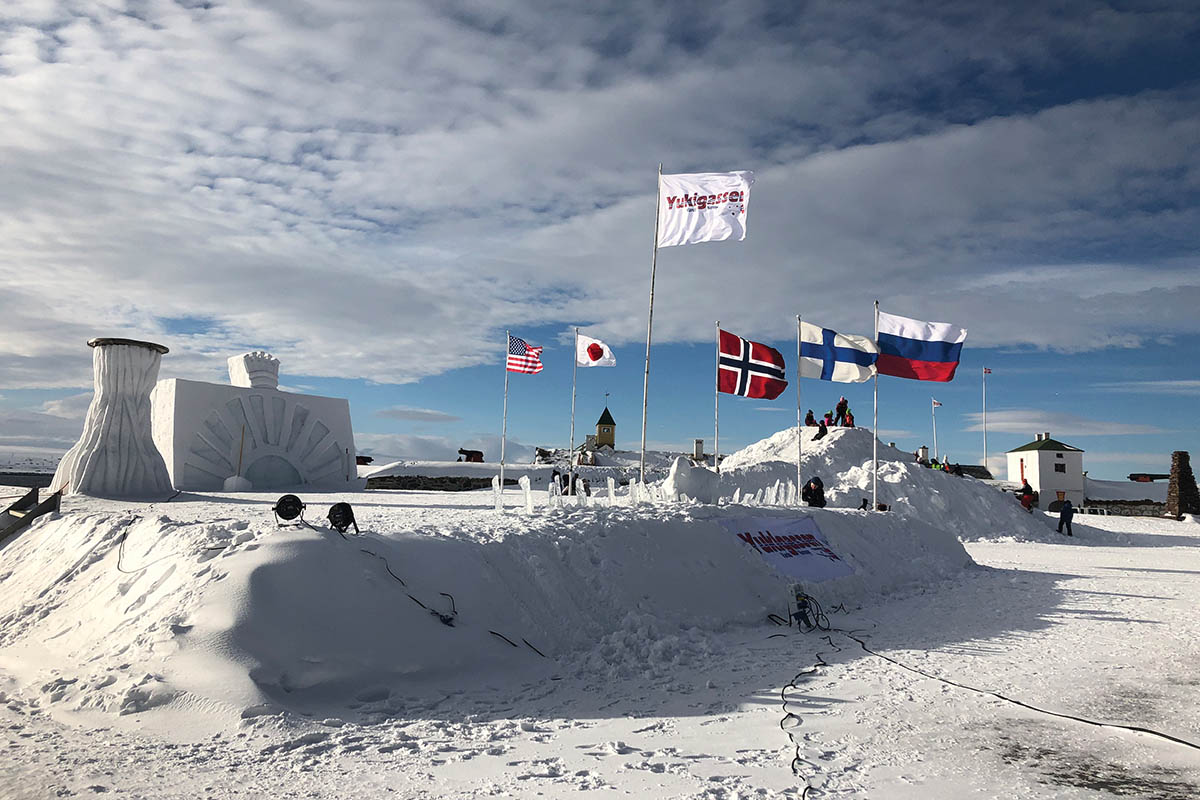 Sobetsu to International Competitions
Sobetsu to International Competitions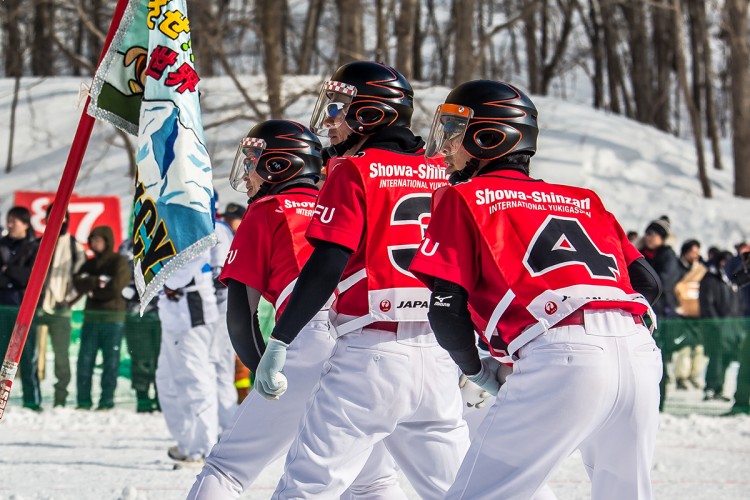 Yukigassen Today
Yukigassen Today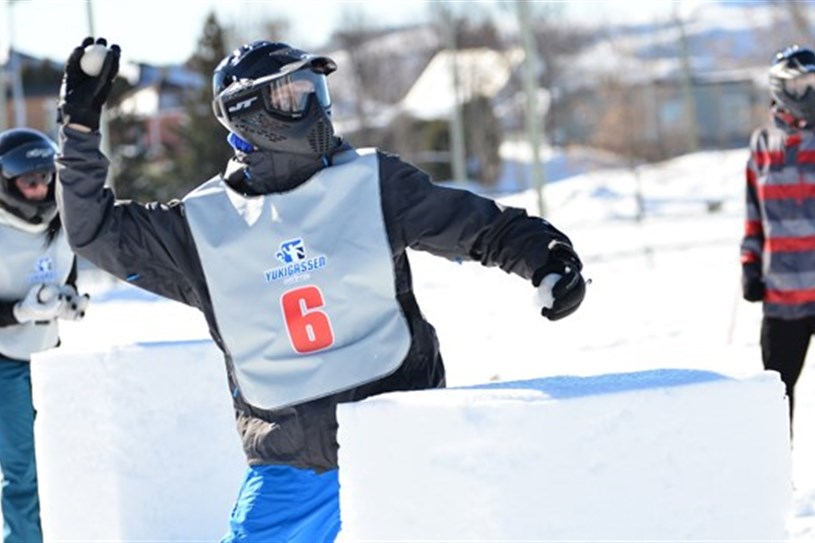 The First Tournament: The Birth of Yukigassen in Sobetsu
The First Tournament: The Birth of Yukigassen in Sobetsu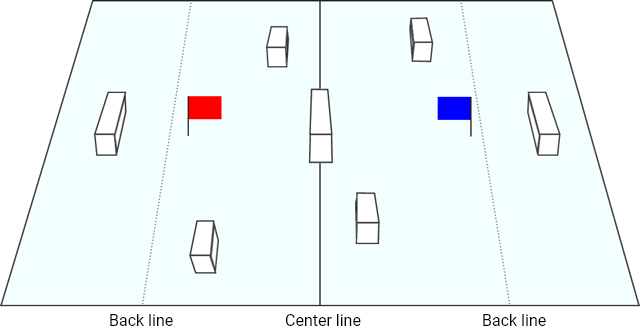 Field
Field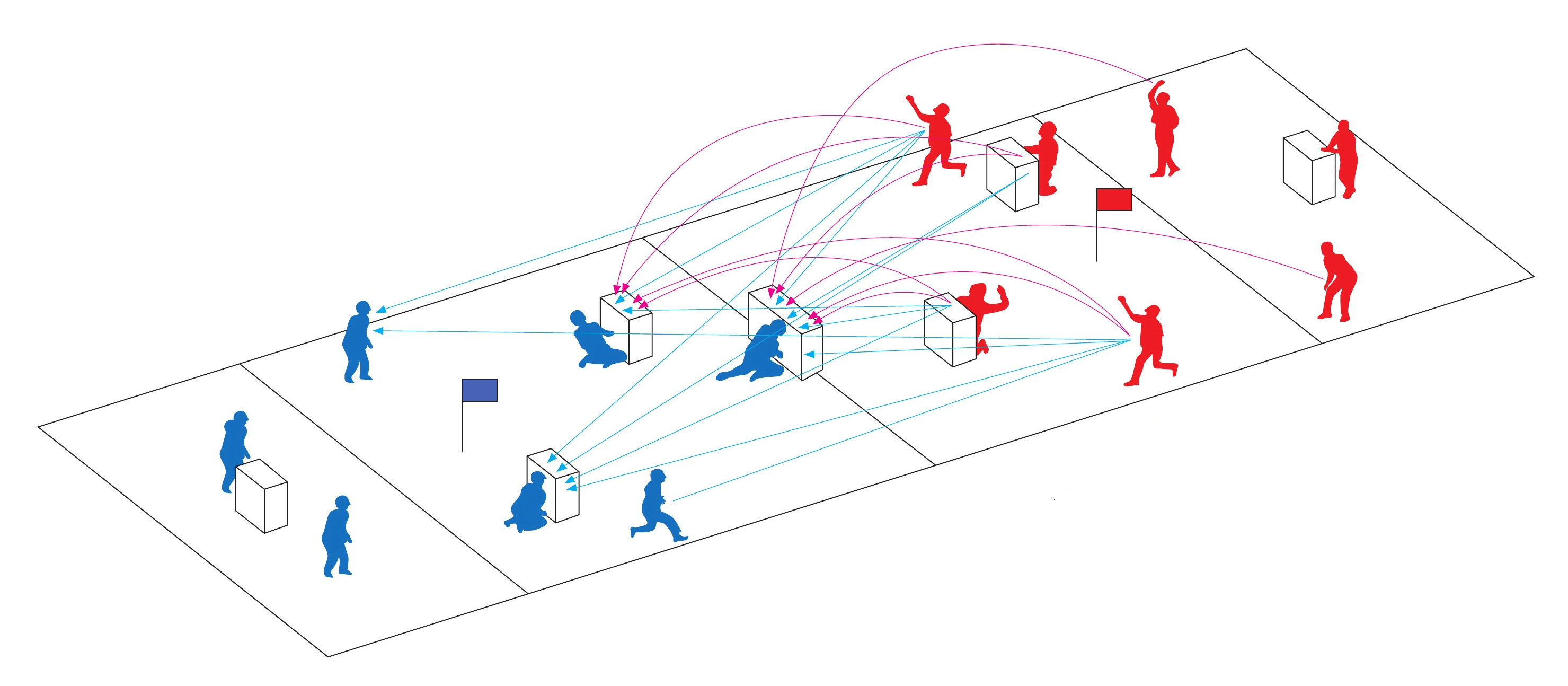
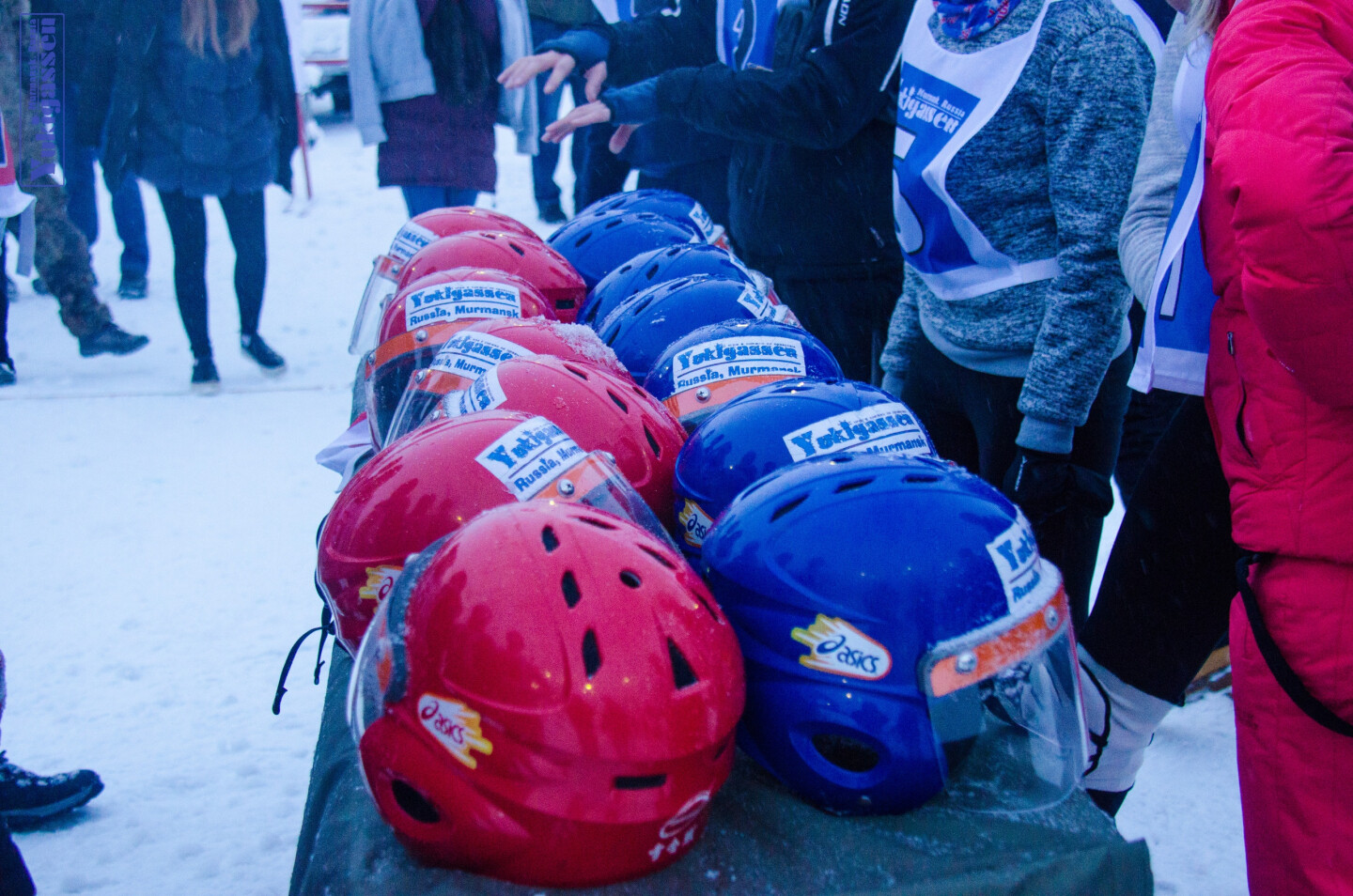 Player Equipment
Player Equipment
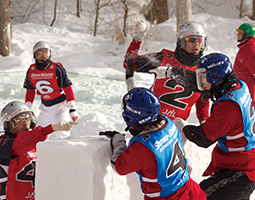 Contemporary Scene of the Sport Yukigassen (Snowball Fight)
Contemporary Scene of the Sport Yukigassen (Snowball Fight)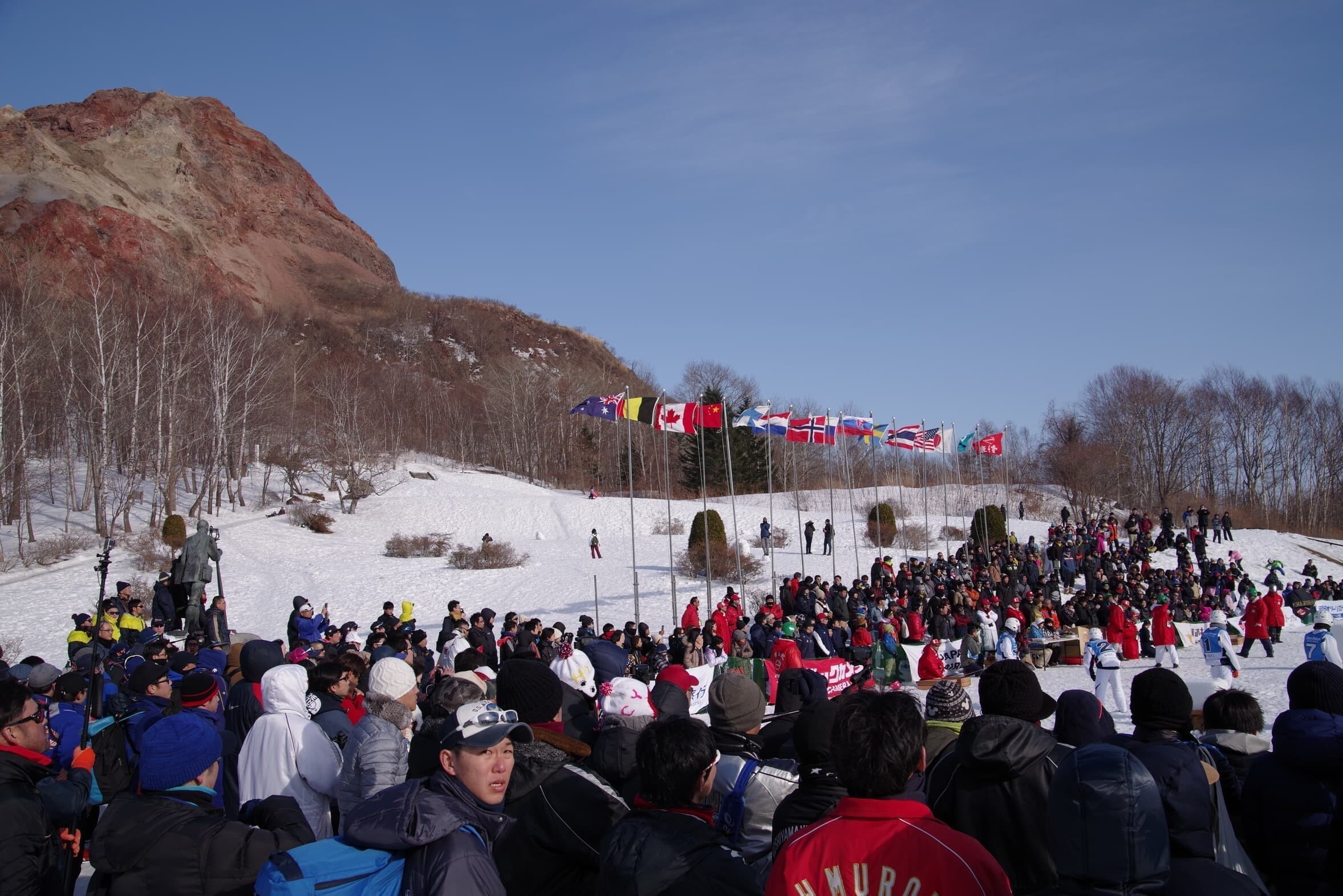 Regional Differences in the Level of Play
Regional Differences in the Level of Play

